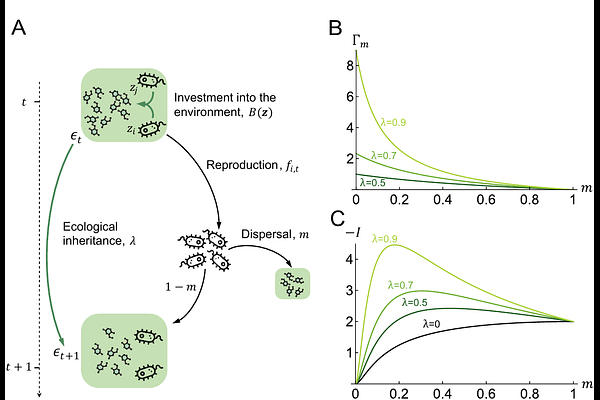Ecological inheritance facilitates the coexistence of environmental helpers and free-riders

Ecological inheritance facilitates the coexistence of environmental helpers and free-riders
Prigent, I.; Mullon, C.
AbstractVariation in social traits and behaviours is widespread in nature and can be maintained by selection. Many social traits influence others fitness indirectly by modifying shared environments that are transmitted across generations, a process known as ecological inheritance. Here, we investigate how variation in environmentally mediated social behaviour, such as helping to improve shared resources, can emerge and persist in spatially subdivided populations where locally modified environments are transmitted across generations. Using mathematical and computational modelling, we show that ecological inheritance, when combined with limited dispersal, readily leads to the stable coexistence of two types with opposite environmental legacies: helpers, who improve the local environment for the future at a personal cost, and environmental free-riders, who benefit without contributing to the detriment of future generations. In turn, this polymorphism generates lasting spatial heterogeneity in environmental quality and, consequently, in survival and reproduction -- particularly under isolation-by-distance, creating stable clusters of high- and low-quality habitats across an otherwise homogeneous landscape. These findings reveal how ecological inheritance and spatial structure interact to stabilise polymorphism, potentially driving long-term behavioural, ecological, and fitness variation across diverse biological systems.